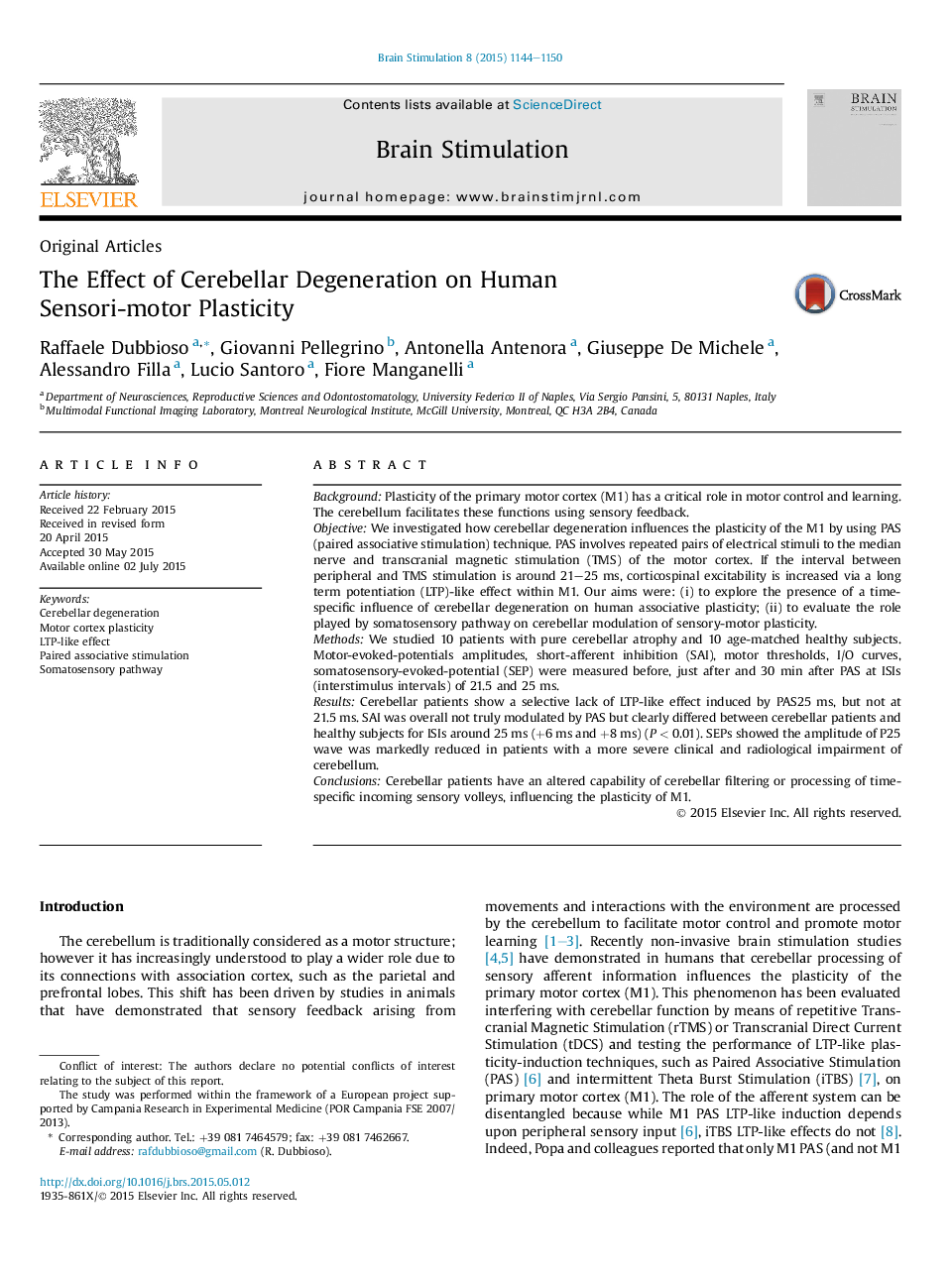| کد مقاله | کد نشریه | سال انتشار | مقاله انگلیسی | نسخه تمام متن |
|---|---|---|---|---|
| 6005494 | 1184665 | 2015 | 7 صفحه PDF | دانلود رایگان |
- Cerebellar degeneration abolishes sensorimotor plasticity in a time-specific manner.
- The loss of plasticity is correlated with clinical impairment and degree of atrophy.
- The cerebellar time-specific effect can be mediated by gating of sensory information.
- Cerebellar patients have an altered capability of processing of sensory information.
BackgroundPlasticity of the primary motor cortex (M1) has a critical role in motor control and learning. The cerebellum facilitates these functions using sensory feedback.ObjectiveWe investigated how cerebellar degeneration influences the plasticity of the M1 by using PAS (paired associative stimulation) technique. PAS involves repeated pairs of electrical stimuli to the median nerve and transcranial magnetic stimulation (TMS) of the motor cortex. If the interval between peripheral and TMS stimulation is around 21-25 ms, corticospinal excitability is increased via a long term potentiation (LTP)-like effect within M1. Our aims were: (i) to explore the presence of a time-specific influence of cerebellar degeneration on human associative plasticity; (ii) to evaluate the role played by somatosensory pathway on cerebellar modulation of sensory-motor plasticity.MethodsWe studied 10 patients with pure cerebellar atrophy and 10 age-matched healthy subjects. Motor-evoked-potentials amplitudes, short-afferent inhibition (SAI), motor thresholds, I/O curves, somatosensory-evoked-potential (SEP) were measured before, just after and 30 min after PAS at ISIs (interstimulus intervals) of 21.5 and 25 ms.ResultsCerebellar patients show a selective lack of LTP-like effect induced by PAS25 ms, but not at 21.5 ms. SAI was overall not truly modulated by PAS but clearly differed between cerebellar patients and healthy subjects for ISIs around 25 ms (+6 ms and +8 ms) (P < 0.01). SEPs showed the amplitude of P25 wave was markedly reduced in patients with a more severe clinical and radiological impairment of cerebellum.ConclusionsCerebellar patients have an altered capability of cerebellar filtering or processing of time-specific incoming sensory volleys, influencing the plasticity of M1.
Journal: Brain Stimulation - Volume 8, Issue 6, NovemberâDecember 2015, Pages 1144-1150
